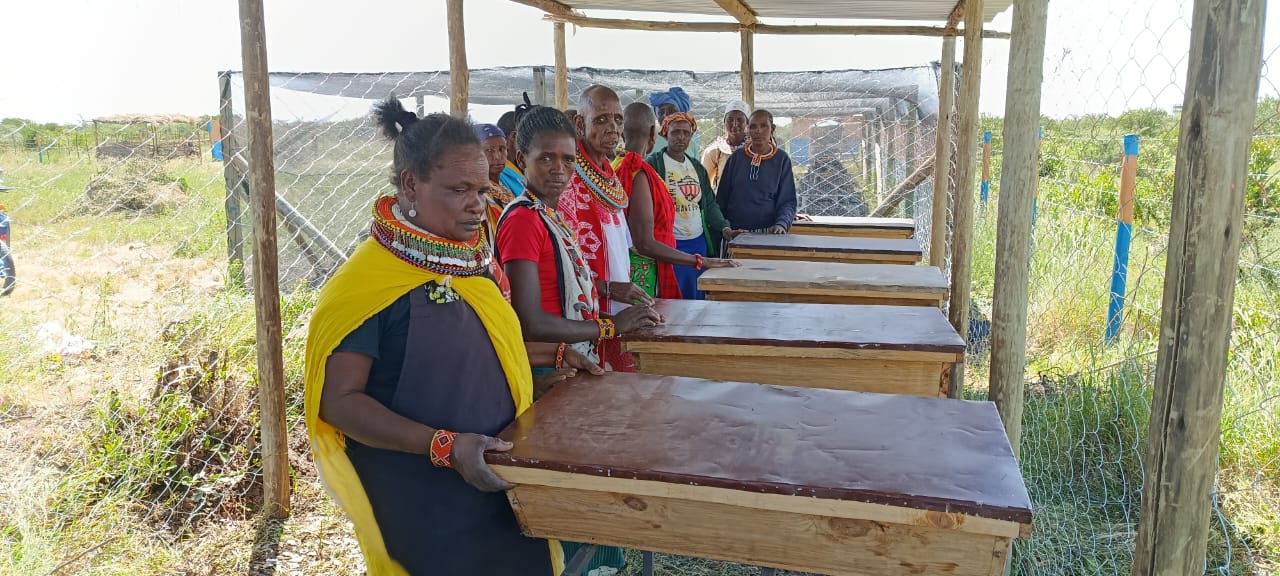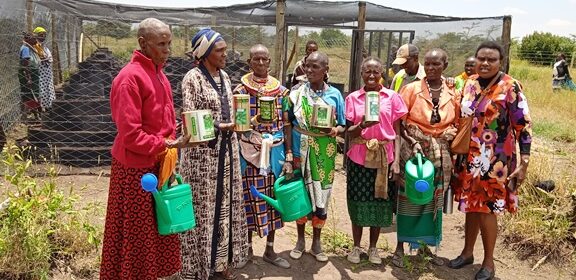

Food security and malnutrition are pressing concerns in many communities, particularly among women. In Naivasha, the MAA community is experiencing a remarkable transformation in vegetable farming, thanks to innovative cone gardens. These multi-storey gardens are not only helping families grow their own food but also empowering women with sustainable agricultural skills.
Agri Drip Africa, in partnership with the REWA Foundation, initiated a pilot project to introduce cone gardens to the MAA community in the Nanyuki suburbs. Through this initiative, 30 cone gardens were set up, directly benefiting 30 women.
This project adopts a ‘learning by doing’ approach, where women are actively involved in constructing the gardens and growing vegetables. Beyond farming techniques, they also receive training on the importance of a balanced diet and the health benefits of consuming vegetables regularly.
The ultimate goal of this program is to extend its reach to more households, enhancing food security and improving nutritional quality. Once a household’s nutritional needs are met, women can scale their efforts to commercial farming, generating additional income and contributing to their economic stability.
In Kenya, economic hardship remains one of the biggest barriers preventing women from accessing nutritious food. Women are disproportionately affected by poverty and often lack the financial resources to provide adequate meals for their families, especially during tough economic times. Additionally, limited education and skills in agriculture and nutrition make it even harder for women to grow their food or prepare balanced meals.
Malnutrition doesn’t just affect women—it has a ripple effect on their children. Undernourished mothers may struggle to produce enough breast milk, leading to malnourished infants. This cycle of poor nutrition can result in long-term health issues for both mothers and children.
To maximize the impact of the cone gardens, further research is needed to explore ways to scale up the project. Key areas of focus include:
Sustainable food security solutions require community involvement. Rather than being passive recipients of aid, women in the MAA community are becoming active participants—citizen scientists who contribute to the advancement of sustainable farming. By equipping them with knowledge and skills, we can empower them to drive long-term change in their communities.
The cone garden initiative is more than just a farming project; it is a movement towards self-sufficiency, better health, and economic empowerment. As more women gain access to these innovative solutions, the future of food security in Naivasha looks increasingly promising.
Leave Comments